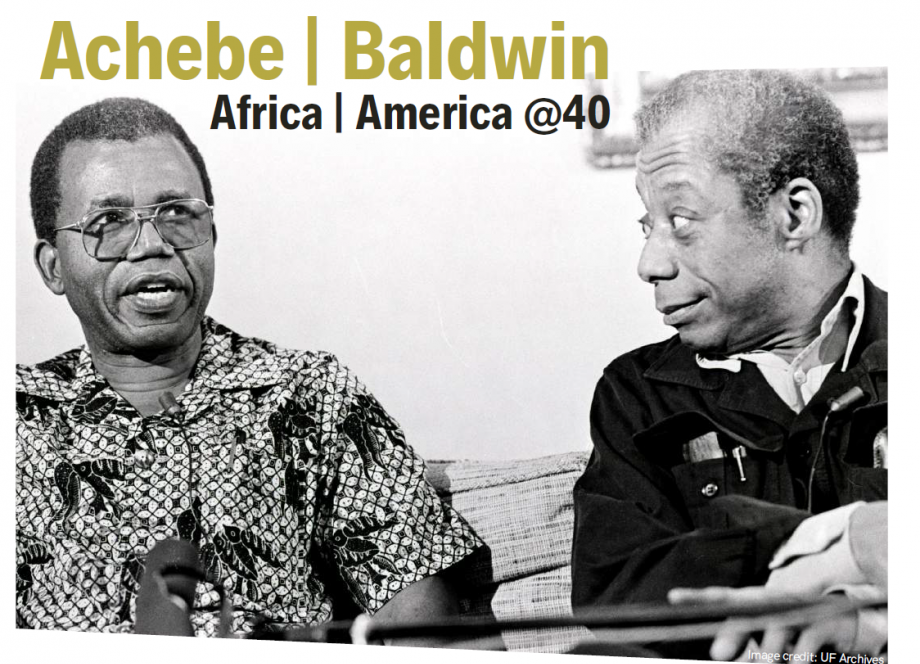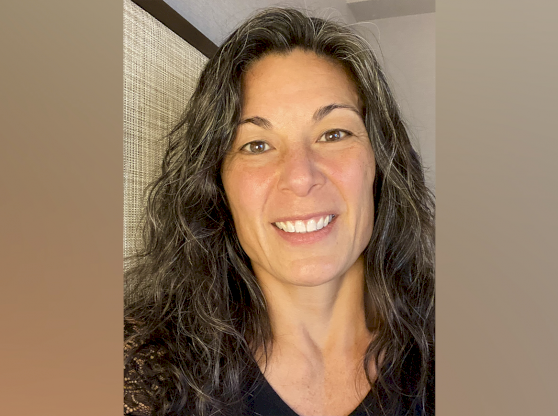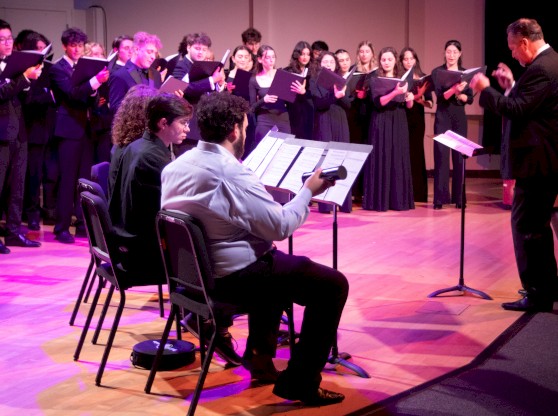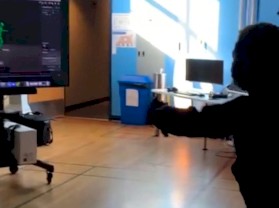- Date & Time
Thursday, October 22, 2020 10:30am to 9:00pmDaily Schedule - Day 1
Friday, October 23, 2020 9:00am to 6:00pmDaily Schedule - Day 2
- Cost
- Free
- Description
On the 40th anniversary of Baldwin and Achebe’s historic encounter at the University of Florida, this two-day event invites return and reflection. The first day probes the experiential archive through oral history, memoir, and artifact. The second day invites literary engagement around reading, representing and writing the nexus of Africa and America in the present on the UF campus and across the community. You are invited to join in sharing your work and reflecting on Baldwin's and Achebe’s legacies.
In April 1980, renowned African writer Chinua Achebe and African American literary giant James Baldwin met for the first time in Gainesville, Florida. The occasion was the African Literature Association conference devoted to the African Aesthetic. This was an historic event on many fronts, not least of which was the hijacking of the PA system during the plenary. Racist invective was met by poetry as Cameroonian writer and composer Francis Bebey stood up to recite Aime Cesaire’s lines “My heart, do not make of me this man of hatred for whom I feel only hatred …” The audience stunned, Baldwin continues, “Whoever you are, it no longer matters what you think. The doctrine of white supremacy on which the Western world is based has had its hour — has had its day! It’s over!”
Forty years hence, what does this encounter of African and African America, U.S. South and Global South, hate and genius, art and violence, portend for the literary imagination? Where are these words and memories lodged? How might we come to know and narrate this past in its midst and from afar. Does a Black Aesthetic today displace the pursuit of an African one? Can there ever be a single voice to speak with or against? Does not a literary imagination forged in displacement and diaspora transcend attempts at localization? What are the artistic and political stakes and do they recall or refute the promises of the past? - Links
- VenueOnline
- Address
News Post : Jul 1, 2024
+ More


